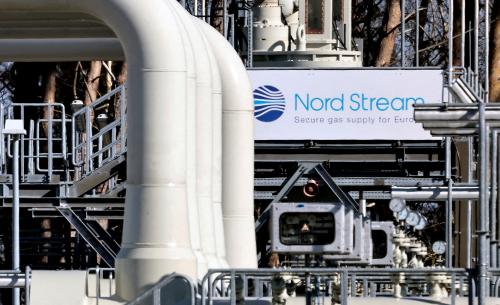China’s agreement last month to join the US and other powers in a diplomatic initiative to contain the Iranian nuclear programme was an important and positive step. If Iran were to accept the offer – including international support for its civil nuclear energy programme and other incentives in exchange for the suspension of uranium enrichment – both sides would get what they say they want: civil nuclear energy for Iran, reassurance on nuclear proliferation for the others.
The problem, as made clear to me in discussions with Chinese officials and analysts in Beijing and Shanghai last month, is that China has no intention of backing this proposal with teeth. Whereas the European Union and US are committed to increasing sanctions on Iran if it rejects the offer, China has made clear that it would continue to oppose significant sanctions and seek only further dialogue.
Beijing’s reluctance to forego juicy economic and energy deals with Tehran is based on simple, almost syllogistic, logic: the Communist party’s main priority is to stay in power. To stay in power, it must maintain social stability. To maintain social stability it needs economic development. And for economic development, China needs massive amounts of affordable energy to fuel its booming economy. Thus, China’s reluctance to do anything that would interfere with its energy relationship with Iran.
This spring, even after signing on to three United Nations Security Council resolutions designed to punish Iran for non-co-operation, Beijing announced that it was moving forward with part of a $70bn (£35bn, €47bn) plan to develop Iran’s massive Yadavaran oil field in exchange for a stake in that field’s development and the supply of liquefied natural gas.
China’s economic logic seems impeccable but it overlooks several realities. Indeed, for a country with the reputation for long-term strategic thinking, China’s pursuit of close ties with Iran is short-sighted. In a global oil market, deals with one country do not ensure the security of supply that China seems to be seeking. There’s always oil available from somewhere in the world, so by developing Iran’s oil fields, China is at best marginally bringing down the global cost of oil and at worst just buying it from one place rather than another. While Iran is a big producer, even its entire oil production of around 4m barrels per day represents less than 5 per cent of total world output.
Beijing also understates the risks to China itself of failing to contain the Iranian nuclear programme. A US or Israeli pre-emptive military strike on Iran would send the oil price up a lot more than would cutting Chinese investment in Iranian oil production. Moreover, Iranian development of a bomb could lead to further nuclear proliferation, not only in the Middle East (Saudi Arabia, Egypt, Turkey) but eventually in east Asia (Japan, South Korea) as the global nuclear taboo was lifted. This would require China to spend more on national defence, its own nuclear forces and missile defences. Finally, the spread of nuclear weapons technology in the Middle East would increase the prospect of Islamist terrorists getting their hands on nuclear materials; this could hurt China directly, given China’s own Muslim separatist problem, or indirectly if a nuclear attack devastated the US or European economies, both of which are more important to China than is Iran.
If China really started to think strategically about Iran, it would not only support international dialogue with Tehran but back that diplomacy with penalties for non-compliance. Even modest Chinese steps such as a freeze on investment in Iranian oil fields and support for tighter financial sanctions at the Security Council would send a powerful signal to Iran, which at present thinks only the west cares about its nuclear ambitions and that China and Russia will always protect it to spite the US. Such measures would also improve China’s image in the US, which is dominated by negatives such as trade imbalances, currency tensions, unsafe food and toys and conflicts over Taiwan and Tibet.
China’s gradual assumption of its responsibilities as an “international stakeholder” is a potentially momentous development in world affairs. Serious Chinese action on the Iranian nuclear programme would bolster that development while serving China’s own long-term interests.



Commentary
Op-edIt Would Benefit Beijing to Be Tougher on Tehran
July 9, 2008